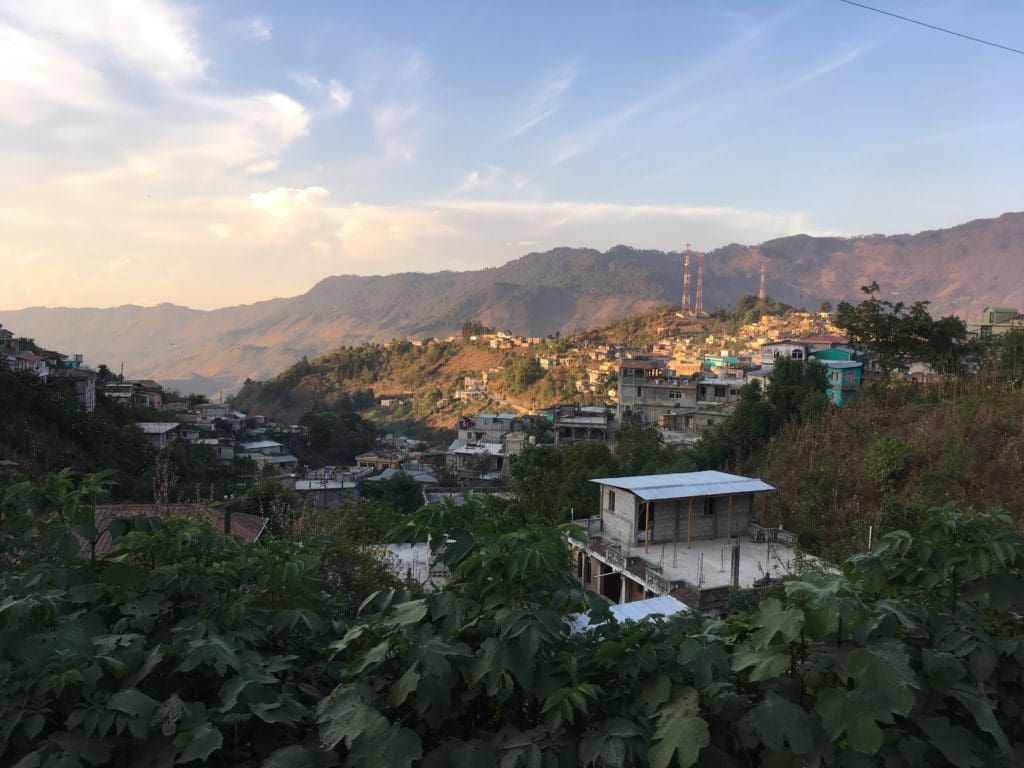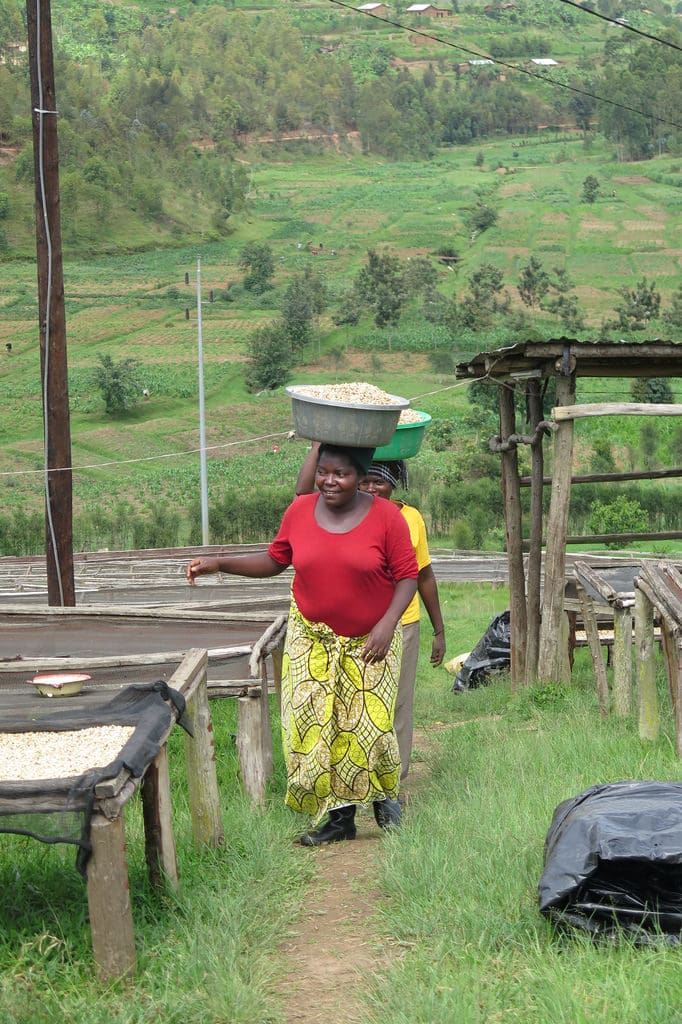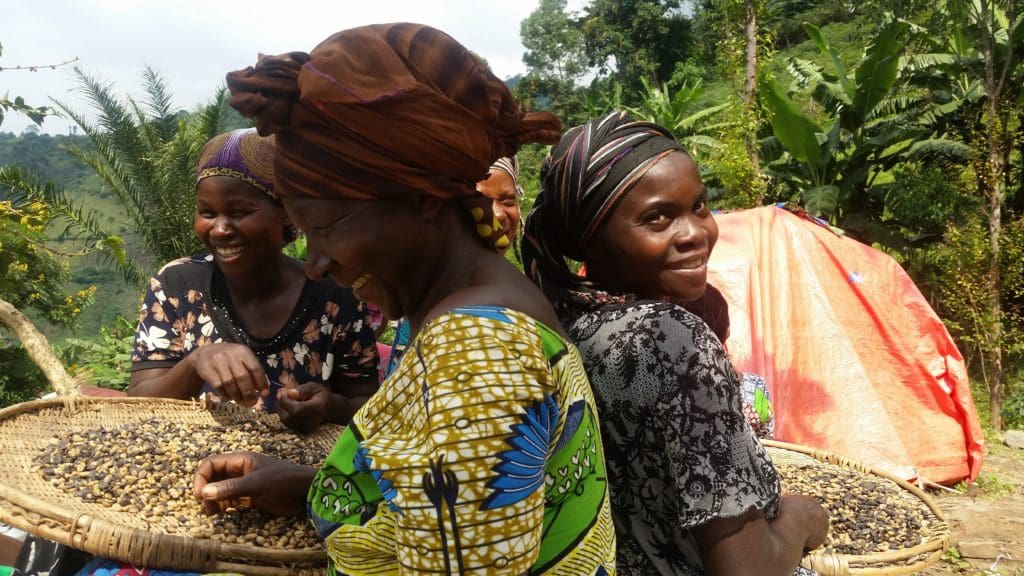Considering the current low coffee market prices, this October couldn’t be a more appropriate Fairtrade Month. Last week we posted some comments on the volatility of the NY “C” market, stressing the need for mechanisms to ensure sustainable pricing for farmers. In that article we focused on the fair trade model as one example of a sustainable price structure. This week we’d like to share a few stories about ways that our producer partners have benefited from social premiums and minimum prices guaranteed by their fair trade certification.
CODECH – Concepción Huista, Huehuetenango, Guatemala
CODECH is comprised of four base associations in Concepcion Huista, Huehuetenango that consistently produce full containers of 85-87 point coffees. The higher prices awarded by certification and quality premiums have also allowed CODECH (in conjunction with Atlas) to commercialize single producer lots through the implementation of a micro-lot competition. Additionally, fair trade premiums have provided producers with great technical assistance in the field, allowed for the purchase of shade plants for their farms, programs to manage solid waste, and provisions for adequate removal of wastewater from wet coffee processing. Most recently, funds from premiums are being allocated toward a barista and cupping training program for youth in the community.
COCAFCAL – Las Capucas, Copan, Honduras
COCAFCAL cooperative in Las Capucas, Copan, Honduras was one of the first coffee producing groups to obtain Fairtrade certification in the early 2000’s. This certification earned them premiums that allowed for construction of centralized wet mill with mechanical dryers and storage area. Since then fair trade premiums have continued to contribute to developments in the community, including several schools, clinics, virtual libraries and product diversification. Today COCAFCAL’s success with their Fairtrade-certified coffee serves as a model for cooperatives around the world.
Ketiara – Central Aceh, Sumatra
Ketiara has established itself as one of the most respected Fair trade cooperatives in the Gayo highlands, and they supply us with some of the highest quality and most consistent coffee we’ve ever seen from Sumatra. Fairtrade (and Organic) certification has allowed Koperasi Ketiara to differentiate and remain competitive, as large multinationals have much of the buying power in the area, especially with conventional coffee. Ketiara is largely focused on producer well-being and inclusion, environmental sustainability, gender equity and supporting youth in coffee. In 2017, they launched a new cooperative group with an administration team composed entirely by women under thirty.
Chirinos – Cajamarca, Peru
Chirinos has a rich history unlike most cooperatives in Peru, or the world, for that matter. In early 2018 they celebrated their 50th anniversary, and their stability as an integrated community organization is evident every time we visit. With most conventional coffee achieving very low premiums across Peru, Fairtrade certification (in addition to quality premiums) has been instrumental in providing producer members with guaranteed price security year after year. This helps to guarantee that members will be able to cover basic needs such as healthcare and education, as well adequately fertilize their crops in anticipation on future harvests.
ASOPEP – Planadas, Tolima, Colombia
ASOPEP was formed in 2013, and shortly after received their Fairtrade certification. For decades, the town of Planadas was in the center of an armed conflict between the Colombian government and FARC guerilla fighters. Now, with the conflict over, Planadas is rebuilding and coffee has been a major catalyst in that effort. Fairtrade certification is helping ASOPEP create many new opportunities for its members where previously there were few. One of the greatest strengths ASOPEP has is its high youth involvement. Fair trade premiums provide incentive for young people to become coffee growers. While many coffee growing countries struggle with keeping young generations interested in coffee production, an impressive 30% of ASOPEP’s farmer members are between 20-30 years old.
UCA San Juan del Río Coco – San Juan del Río Coco, Madríz, Nicaragua
Cooperative UCA San Juan del Río Coco in Madríz, Nicaragua was founded in 1992, certified organic in 1993 and Fairtrade certified in 2004. As with many coops, the organization required to maintain compliance with Fairtrade certification has been a benefit to UCA SJdRC itself. A significant result of careful planning and management of leadership and finances is improved business efficiency. Fairtrade certification has helped UCA SJdRC gain access to new global markets, and the association has built their own dry mill adding value and quality control to their product.
https://www.fairtrade.org.uk/Farmers-and-Workers/Coffee/UCA-SAN-JUAN
Hingakawa, Abakundakawa – Rushashi, Rwanda
Abakundakawa, meaning “People Who love Coffee”, was established in 1999. Hingakawa Women’s Association, within Abakundakwa, has used its premiums to purchase a communal farm and distribute cows, pigs, and goats to members, and they have plans to build a training center which will include sewing instruction and a child development center. The members of Abakundakawa have used some of their Fairtrade premiums to build a community center, contributed to supplying water to the local secondary school and health center, and to improving the road.
COCOCA – Kayanza, Burundi
COCOCA (Consortium of Coffee Growers Cooperatives) is an umbrella cooperative, established in 2012 and representing around 1,300 members in 42 member cooperatives around Burundi. The member cooperatives collectively own their own dry mill, which is named “Horamama” and means, “Cheer Up!” This year we are purchasing coffee from Dusangirumugambi (“Share the Same Goals”), which was founded in 2014 and is already implementing female-led gender justice and sustainable agriculture programs. They have additional projects on the horizon, such as water tanks, access to organic fertilizer, supplying washing stations with electricity, and installing solar panels to power the depulping machine. Yakikawa, meaning “Talk About coffee” was founded in 2007 and is one of the oldest cooperatives in Burundi. The cooperative is hoping to build a new health center closer to the washing station, and submitted the winning lot for this year’s Cup of Excellence competition!
BJCU - Kyarumba, Kasese, Uganda
Bukonzo Joint Cooperative Union (BJCU) was established in 1999 as rural micro-finance society and has evolved into a well-regarded cooperative comprised of 5,500 farmers and 24 micro washing stations producing washed coffee. BJCU achieved Fairtrade certification in 2012 and with their social premiums they invested in projects not only benefitting the members, but the community as whole. Some project include: investment in a maternity ward and community health center; road and bridge building; assisting the micro washing stations with water-flow schemes; and extending electricity into the mountains, making it easier for remote farmers to deliver parchment from the higher elevation washing stations. Bukonzo Joint is a great example of a cooperative continually striving to improve quality in an area known more for lower-grade natural and washed coffees.
Muungano – South Kivu, Democratic Republic of Congo
Founded in 2009, Muungano coop is comprised of around 4,400 smallholder farmers, nearly half of them women. Muungano’s three washing stations sit along the Western shore of Lake Kivu, with coffee grown between 1,500- 2,000 meters above sea level. The word “Muungano” actually means “togetherness” in Swahili and is a core principal for its members, who come from diverse ethnic backgrounds and who have endured years of conflict and instability. The members of Muungano have used social premiums to invest in gender equity workshops, the construction of a cupping lab and central office, and coffee quality improvement from picking to sorting to washing station practices. Their hard work has paid off, as they have produced some of the best coffee from DR Congo that we’ve ever tasted!
These stories hopefully make a clear case for the need for sustainable price mechanisms for coffee farmers. The farmers featured here are able to count on a minimum price in the midst of a volatile coffee market, and the social investment mandated by the fair trade model also assures that premiums fund healthy community development. As we’ve previously mentioned, numerous price structures exist to meet or exceed farmers’ costs of sustainable production. The fair trade model is one way in which coffee roasters and consumers can support a sustainable supply chain for years to come.


